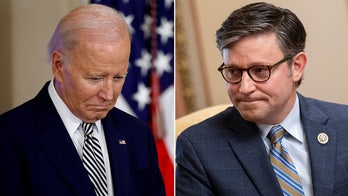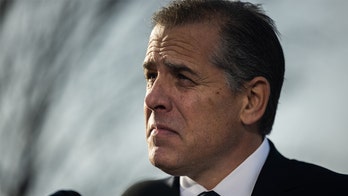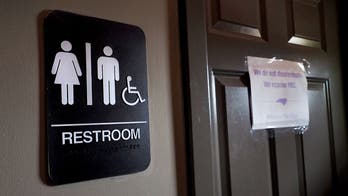Lawmakers from both sides of the aisle aired their grievances Thursday about a draft proposal from the White House that makes federal contractors disclose their political contributions.
"Doing this ahead of the fact; doing this ahead of the contract award and having that information out there can serve no other purpose than to be politically motivated," Rep. Sam Graves, R-Mo. said at a joint hearing of the House oversight and small business committees.
Federal Procurement Director Daniel Gordon said the proposal isn't final, but contractors will be protected, regardless of their political preferences.
"Agencies may consider only the factors that are set out in the solicitation - nothing more, nothing less," Gordon said.
Bipartisan opposition to the proposal grew, when Democratic Missouri Sen. Claire McCaskill joined Connecticut Sen. Joe Lieberman, an independent, in a letter to the president with a warning.
"[R]equiring businesses to disclose their political activity when making an offer risks injecting politics into the contracting process," Lieberman said.
Rep. Darrell Issa, R-Calif., chairman of the House Oversight committee who has vowed to investigate many Obama administration policies this year, took a more personal swipe at the president, saying contractors are fearing "...a corrupt Chicago-style spoils system where contracts are tied to partisan political affiliations."
White House Press Secretary Jay Carney ignored the Chicago dig and challenged the premise.
"Disclosure is a good thing. And I'm not sure when it became a bad word or a bad idea,” Carney said at Thursday’s briefing. “Disclosure used to be something that Republicans supported very much."
Aides say the president feels the disclosure is needed because of the Supreme Court ruling in the Citizens United case that removed limits on corporate political spending more than a year ago.
But differences between Republicans and Democrats on the ruling are so wide that the federal election commission hasn't been able to write rules implementing it.
The White House has argued that the proposal is in draft form and that the president continues to look it over. They have reiterated for the administration, it’s about transparency and openness.
Gordon says federal vendors are already subject to some disclosure requirements.
"Information about lobbying, for example. It is not taken into account in the selection of contractors but it is required to be submitted. And it is publicly available," he said.
But Issa says the draft order doesn't apply to unions.
"It exempts unions which do have a limited amount of contracts and a great many grants to the federal government," he said.
Senate Minority Leader Mitch McConnell, R-Ky., on Wednesday called the proposal a disguise that would allow the administration to know a political donation and use that as a basis or denial of a contract.
Rep. Steny Hoyer, D-Md., the second ranking Democrat in the House, who has many federal workers in his Maryland district also opposes the draft order.
Gordon refused to say if he supports the order as it stands because it’s only in draft form.




